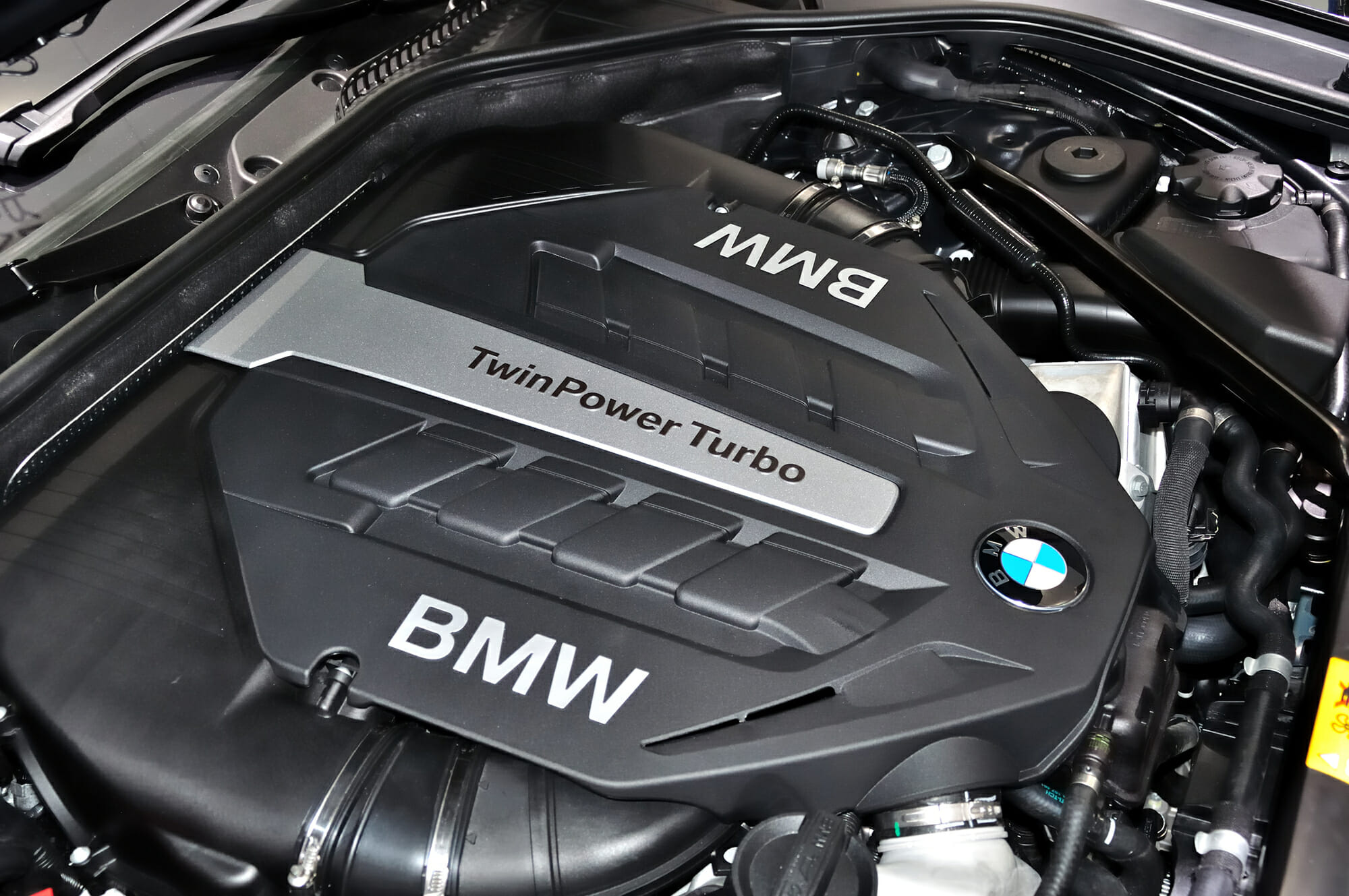
If want to buy a BMW, you have many exceptional models to consider. Each one comes with several engine options as well, making it quite important that you do your research to find the best one. Once you get that done, your car buying journey will go a lot smoother.
What are the specs for the most popular BMW engine?
Although BMW has many engine options, the B58 twin-turbo 3.0L inline six-cylinder engine is the most popular. For 2020, it produces 382 horsepower and 379 lb-ft of torque. With that, it can reach 60 mph in just 4.1 seconds.
You really cannot go wrong with the 3.0L inline six-cylinder. This engine has a long history in the BMW lineup and offers an excellent balance of power and reliability. Here’s what you need to know about this popular powerplant.
History of BMW Engines
BMW has made it their mission to produce some of the most awe-inspiring automotive engines to ever hit the market. They started this mission in 1933 after years of making aircraft and motorcycle powerplants.
Out of all their offerings, the inline six engine remains their claim to fame, as it is the most well-known and easily the most popular choice. Through the years, they’ve made this engine in a variety of sizes, ranging from 1.2L to 3.8L.
Historically, the BMW straight six is naturally aspirated. But all that changed in 1980 when they rolled out their 3.2L inline six-cylinder engine for the 745i. They continued with that pursuit until 1986 when it was put on the back burner for two decades.
In 2006, they returned to their previously abandoned forced induction dreams. They started by building the turbo 3.0L inline six for the 335i and it was a rousing success. As a result of its popularity, they continued building this powerplant for 10 more years.
To best abide by emissions regulations and fuel efficiency standards, BMW set their sights on creating a twin-scroll powerplant just a few years later. They rolled it out in 2009 in their 5 Series and it landed on the Ward’s 10 Best Engine list straight away.
The B58 engine was built to replace the original twin-scroll inline six-cylinder in 2015. Like its predecessor, it instantly started winning awards. More importantly, it became a quick fan favorite, attracting buyers who want the best mix of performance and fuel efficiency.
Depending on its configuration, this powerplant generates between 322 and 503 horsepower. Its torque figures are equally impressive at 332 to 443 lb-ft of torque.
The B58 produces all that power largely thanks to its twin-scroll turbocharger that stays cool with its air to liquid intercooler. But the turbo doesn’t do all that work alone. It’s supported by variable valve and lift timing, direct injection, and a dual overhead cam setup with four valves per cylinder.
Which Models Have the Most Popular BMW Engines?
The B58 powerplant is found in a wide variety of BMW models produced from 2016 to present. The most notable models include:
- 2016 to present 440i (321 horsepower)
- 2016 to 2019 M140i (335 horsepower)
- 2018 to present Z4 M40i (335 horsepower)
- 2017 to 2019 X4 M40i (355 horsepower)
- 2020 to present X3 M40i (382 horsepower)
Beyond the BMW lineup, this engine also landed in the 2020 Toyota Supra. This iconic car got the 382-horsepower version to ensure it could keep up with the competition and serve yet again as the flagship of the brand.
People Also Ask
Are BMW Engines Reliable?
BMW engines are largely quite reliable. The best of the bunch is the naturally aspirated 2.5L inline six-cylinder in the E90 3 Series. It’s known to surpass 200,000 miles without needing much more than routine maintenance services.
Who Makes Engines for BMW?
BMW makes most of their own engines at plants all across Europe, including Munich, Germany. In 2015, they outsourced the production of 20,000 engines a year to Force Motors in Chennai, India.
Are BMW V8 Engines Reliable?
When compared to their six-cylinder line, BMW V8 engines are simply not as reliable. They are known to go through a lot of oil as it leaks out of the seals and gaskets. Their internal parts wear out prematurely as well if they do not get their maintenance services done on time.
Where Do I Find My BMW Engine Number?
You can find your engine number by looking at the VIN, which is either in the right inner fender or on the dash. As you read the VIN, zero in on the eighth number in the sequence to find the engine designation. Then, use your manual to decode that number and find your engine type.
What Engine Does BMW Use?
The vast majority of BMW vehicles use the inline six-cylinder engine, ranging from 1.2L to 3.8L in size. Across the rest of their lineup, they may use V8, V10, or V12 powerplants. They’re also known to use inline three- and four-cylinder engines from time to time.